One Step at a Time: Targeted Community Engagements to Combat Food Insecurity
By Aneesh Chatterjee
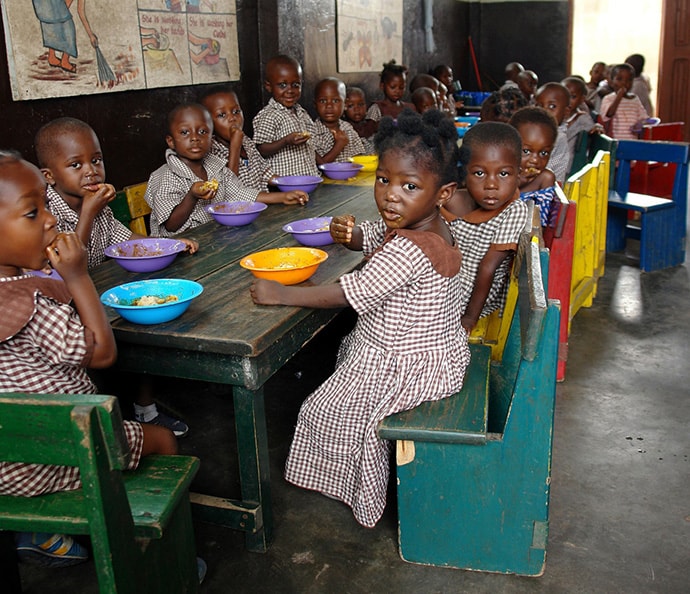
Children eating a meal at their school; Ghana. Photo: Bill Wegener/Unsplash
For Mebrhit Hailay, a 28-year-old resident of Shire, Tigray, providing at least one meal a day for her three children had proved to be the exception, not the norm. A BBC investigation into the region’s hunger crisis published in August 2023 shed light on the catastrophic effects of rampant starvation on Mebrhit and others like her – people affected directly by prolonged drought, civil conflict and the increasing scarcity of successful aid deliveries to the region. In its sixth consecutive year without adequate rains, Ethiopia sits at number two on the International Rescue Committee’s 2023 Emergency Watchlist; an estimated 28.6 million people in the country are in need of humanitarian aid, with 20 million of them suffering from food insecurity. The 2022 Global Report on Food Crises (GRFC) categorized over 400,000 Ethiopians under Phase 5 of the Integrated Food Security Phase Classification (IPC), designated as “Catastrophe/Famine” – the most dire of the IPC’s classifications for measuring food insecurity in a region, and the highest number of people to be placed under Phase 5 in the history of the GRFC.
Although one of the most extreme, food scarcity in Ethiopia is just one example of a widespread global crisis. In 2021, the GRFC estimated that up to 193 million people across 53 countries and territories were in IPC Phase 3 or higher (ranging from meeting bare minimum food requirements to extreme starvation). As of 2023, the World Food Programme estimates that up to 345 million people across the world are grappling with prolonged hunger crises, with military conflict being the largest catalyst for exacerbated food scarcity, followed closely by climate change impact and skyrocketing agricultural costs. The Global Hunger Index predicts that, even with efforts undertaken to meet Sustainable Development Goal 2 (Zero Hunger), the SDG’s 2030 target for eliminating global hunger is, at the moment, far from feasible.
Even so, institutions working to address hunger are targeting the issue at every level of engagement – from innovating systematic resilience to providing on-the-ground aid relief. The following GlobalWA members are bringing high-impact changes through grassroots interventions in affected communities.
Relief in Crisis
While the growth of communities is dependent on sustainable self-reliance, some members conduct interventions to stabilize victims of war and communal violence, displaced and without access to basic necessities. UNICEF conducts interventions across a range of sectors to address child nutrition. In Sudan, UNICEF has delivered 2,300 megatons of health and nutrition supplies to displaced populations as a result of war and kept 80% of malnutrition centers in Sudan operational. Beyond providing medical supplies, WASH assistance, building safe spaces for children, and keeping and child protection as a priority, UNICEF’s interventions for food security ensured the safe delivery of 1,440 cartons of Ready-to-Use Therapeutic Food to over 300 children at an orphanage in Khartoum.
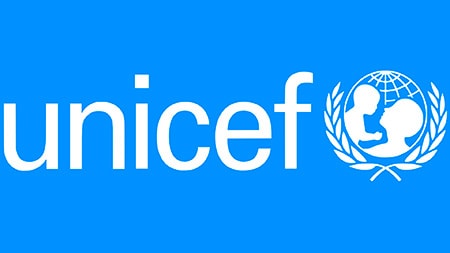
Beyond building technology solutions, Mercy Corps has also led critical relief programs through emergency responses. In the Democratic Republic of the Congo, the SAFER project brought vital food assistance to over 9,500 families cut off from access to their farms after escaping communal violence in the towns of Nyankunde, Komanda, and Makayanga. The SAFER project, in accompaniment with a transitional assistance program called PHASE, helped families stabilize and meet their nutritional needs while regaining access to their fields, learning alternative farming methods, and accessing markets with provisioned vouchers at organized food fairs.
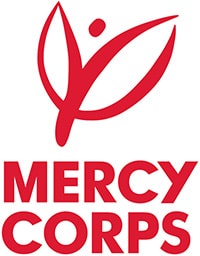
Communities Building Self-Reliance
Launched in 2014, the Urban Slum Health Action Programme (USHA) by Sukarya USA works to identify and treat malnutrition and anemia, with a focus on mothers and children up to five years of age. Targeting 22 slums across Delhi and Gurugram, Sukaraya collaborates with Wipro Cares, Fidelity International, and OYO Cares to address infant mortality and maternal health, and build community awareness regarding nutrition. The USHA program holds cooking demonstrations with nutritionists to encourage sustainable eating habits and teach frugal meal-planning.
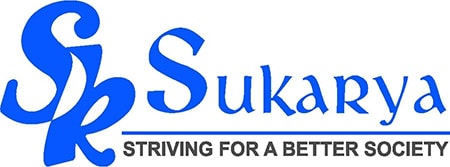
Alongside nutrition, the program focuses on immunizations, holds sanitation workshops to promote personal hygiene and WASH best practices, and conducts regular in-house visits to ensure that communities are benefiting from the program’s activities. Prioritizing the health of mothers and children, the 2021 Rural Health Action Program (RCHA) continues to address anemia and malnutrition in Haryana and Rajasthan, with support from Bird Group. Across their programs, Sukarya teaches low-cost, nutritional recipes, distributes necessary supplements (e.g. iron, folic acid, calcium, and vitamin A), sets up medical camps for blood tests, counseling and maternal support, promotes health and nutrition awareness in schools, organizes Self Help Groups (SHGs) with women for processing cereal, and conducts regular nutrition demonstrations in targeted communities.
In Sri Lanka, UNICEF provides cash to eligible families to fortify their buying power and build resilience against hunger; this provision accompanies information on breastfeeding, infant nutrition practices, and advice on how to best ensure the child’s dietary needs. UNICEF also facilitates the provision of meals to over 18,000 students across 652 preschools in Sri Lanka with support from the Bill & Melinda Gates Foundation. In Uganda, UNICEF conducted information sessions and cooking demonstrations for mothers, using infographic charts to teach the proper and timely identification of signs that their children may be malnourished. The outreach program acknowledged that mothers play a critical role in ensuring child nutrition, and encouraged the involvement of local mothers themselves in ensuring the program’s reach and impact.

Landesa works to legitimize land ownership in rural communities as a way to combat food insecurity. With their Land Rights for Sustainable Development II Project in Liberia, Landesa is facilitating the formalization of land, consulting on legal and policy-making matters, and building awareness of land ownership laws and rights within communities through radio broadcasts following the passing of a land rights law in 2018 that sought to recognize and protect the rights of up to 3 million Liberians. Landesa also conducts advocacy and consulting projects in Tanzania and Zimbabwe, prioritizing legitimate land ownership as a vital defense against food scarcity.
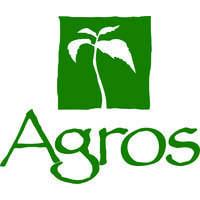
Another organization focusing on land ownership is Argos International. Prioritizing the effective utilization of land as a core defense against the hunger crisis, Argos also teaches communities sustainable practices to build independent resilience. In San Jose City in the Philippines, Argos has assisted families by teaching them drip irrigation, demonstrated the efficacy of greenhouses and other sustainable farming technologies, and enabled them to earn their land ownership rights, securing long-term income and food security. With families acquiring land rights in as little as three years, the intervention in San Jose is one of Argos International’s most successful projects.
The Hunger Project (THP) conducts widespread interventions in communities across Africa, South Asia, and Latin America to address hunger. In Benin, for example, THP has promoted their Epicenter Strategy to mobilize rural communities, enable them to better pool their resources, and allow greater representation for the local government. Beyond systemic changes, THP implements Soil Protection and Rehabilitation (ProSOL) in Benin, teaching farmers sustainable agricultural practices to prevent reductions in crop yield. Their Early Childhood Nutrition and Development Project (PNDPE) provides emergency food relief for children, reliable meals for school students to encourage greater nutrition and more consistent attendance, and advocating for policies with greater attention to childhood malnutrition. The Epicenter Strategy is also used in Mozambique, Senegal, Uganda, Ghana, Malawi, Burkina Faso, Ethiopia, and Zambia.
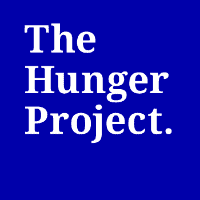
In Mexico, THP has partnered with The Church of Jesus Christ of Latter-day Saints to bring multiple micronutrient supplementation (MMS) and essential nutrition action (ENA) interventions to the states of Puebla, Estado de México, Yucatán, Chiapas, Oaxaca and San Luis Potosí. Alongside an initiative to promote and preserve traditional cuisine practices in partnership with Starbucks, THP uses these interventions to provide nutritional needs for mothers and children under five.
Innovation for Food Security
Aside from direct interventions to engage with communities, other members have brought critical innovations in technology, machine learning and data utilization to strengthen targeted communities against food insecurity.
Developing specialized technological solutions for idiosyncratic issues is a strategy adopted by Mercy Corps. To relieve residents in rural Uganda of the arduous acquisition of firewood for cooking meals, the Technology Development (T4D) team at Mercy Corps designed a solar-powered cookstove in collaboration with Pesitho, called ECOCA, bringing the product to the Bidi Bidi settlement in Uganda, housing over 270,000 Sudanese refugees. With enough battery power for three meals a day, and equipped with portable lights and USB charging ports, the ECOCA eliminates the long hours required for firewood gathering and allows locals to focus their efforts on community engagement, socialization, or work.
Another Mercy Corps initiative in Uganda is the digital needs wallet, developed in association with Sempo, enabling residents to make purchases with digital currency using their phones and facilitating greater access to food markets through participating vendors. Furthermore, the digital wallet enables faster and more secure transfer of funds for financial assistance programs, reducing the risks associated with using tangible cash. The wallet takes advantage of widespread mobile phone usage and broadband network coverage in Uganda; 65.7% of Ugandans use mobile phones, and 80% of the country receives coverage. Due to low usage of smartphones in the region, the digital needs wallet is built to be operable on older device types as well.
![]()
Leveraging the importance of understanding systems when addressing food insecurity, DE Design + Environment delivered workshops on agricultural risk mapping for the Inter American Institute for Cooperation on Agriculture (IICA), targeting Trinidad, Tobago and Guyana. From the identification of risk factors and hazards to their specific implementations in the targeted regions, the four-module workshop provided the IICA with impactful, applicable insight on the challenges facing the agricultural sector. Risk maps developed for each region emphasized the importance of building resilience against hazards to fortify agricultural success and long-term food security. For Guyana, DE analyzed the country’s main agricultural sectors (i.e. fisheries, livestock, produce, sugar, and rice), identified specific risk factors faced by these sectors (e.g. flooding and heavy rains leading to overflow as a result of poor drainage and irrigation systems), and provided data-backed risk maps for each hazard listed for every agricultural sector in all three targeted countries.

Grow Further also brings technological innovation in building resilient food security. Targeting the agriculture sector of Tanzania, the program seeks to address significant losses in the country’s maize and bean yields due to crop diseases and pests, two of the region’s staple ingredients. By using machine learning and building an accompanying mobile app, Grow Further aims to develop a system that can identify at a much earlier stage the probability of crop disease, allowing farmers to identify potential hazards early and enjoy more stable yields, greater income, and bolstered food security. The project aims to provide data-driven identification assistance to 400,000 farmers within two years, and up to 5 million farmers in 20 years.
Members display sharp focus and cultural sensitivity in their grassroots engagements, developing solutions that are best suited for the specific needs of their given target regions. Direct interventions, whether they be critical aid delivery in crisis, raising awareness about best nutritional practices, or the development of technologies to strengthen a community, are the first and most important move in changing the grander state of food security across the world.
In addition to the above organizations, the following GlobalWA members are working on SDG 1 No Poverty and SDG 2 Zero Hunger to establish Food Security through their programs in communities where they work.
Threats to food security come from a variety of social, economic, and environmental factors that must be consistently monitored to create evidence-based policies to support sustainability. The SDGs (Sustainable Development Goals) and various MEAs (Multilateral Environmental Agreements) are in place to demarcate collectively agreed upon targets and indicators to support sustainable development and food provision. DE is an internationally recognized company that specializes in environmental data acquisition, analysis, processing, and reporting for sustainable development, whether it be for national progress on MEAs and SDGs or corporate sustainability performance (ESG). The DE team works extensively in the Caribbean and Latin America with SIDS (Small Island Developing States) to support their national sustainability governance and alignment with global targets.
DE was founded in 2005 and has steadily built a reputation for innovative and creative solutions to environmental challenges with information analysis and design as well as software design. Clients include the United Nations, World Bank, Global Environmental Facility, CARICOM, the IISD (International Institute for Sustainable Development), and several national governments and NGOs. The goal with all DE work is to pursue the company mission to “Solve problems using design and environmental science”.
Future of Fish believes new models and approaches are desperately needed in order to deliver coordinated fishery transformation at scale. That’s why they work to generate systemic change in fisheries through a progression of coordinated activities developed in collaboration with stakeholders whereby stocks are managed more sustainably, fishery communities maintain resilient economies, and fishers and seafood workers benefit from improved social equity and livelihoods.
The mission of Grow Further is to empower farmers, scientists, and individuals to create a food-secure future. We put out open-ended calls for agricultural R&D grant proposals, seeking the best ideas from around the world to help smallholder farmers adapt to climate change and improve nutrition and farm income. We select proposals with the best strategies to reach a large number of farmers per dollar invested. We listen to farmer needs, and engage our individual and corporate donor members, who come from different professions and parts of the world, in the value judgments around choosing among the finalists. For scientists, we support projects that other funders have overlooked in areas like neglected and underutilized crops and IT in agriculture. For donors, we provide an answer to the simple question, ‘I want to support the future of food security. How do I get involved?’ We’re currently supporting CSIR-Savanna Agricultural Research Institute in Ghana in farmer engagement, breeding, agronomy, and strategic partnerships to develop the first ever commercial variety of Bambara groundnut, a nutritious and climate-resilient bean with great potential. We’re also supporting NM-AIST in Tanzania in developing a machine learning-based app for smallholder farmers to identify maize and bean diseases early.
Heifer International is ending hunger and poverty in a sustainable way by working with farmers to improve productivity, diversify their businesses and increase incomes. With a living income they can provide quality food for themselves and their families.
Landesa champions and works to strengthen land rights for millions of those living in poverty worldwide, primarily rural women and men, to promote social justice and provide opportunity. Secure rights to land encourage smallholder farmers to invest in sustainable practices—like irrigation technologies, terracing, fallowing, and agroforestry—that conserve soil and boost crop yields to feed the world, growing the path toward zero hunger.
Formal land rights increased agricultural productivity by an average of 40% in a meta-analysis conducted across Asia, Africa, and Latin America. In Kenya and Rwanda, Landesa is laying the foundation for millions of smallholder farmers—women and men—to break free from the cycle of poverty and hunger. Through the Agricultural Systems Change Initiative, a partnership with One Acre Fund and Co-Impact, we seek to strengthen land rights for 6 million rural households and transform the agricultural sector so smallholder farmers can increase their productivity and income. The initiative simultaneously works to shift gender norms and ensure equitable access to agricultural markets for women, who produce a significant portion of the world’s food yet often lack the same resources as men.
Oxfam’s mission is to fight inequality to end poverty and injustice. That’s why they work with women small-scale farmers, local food entrepreneurs, and Indigenous Peoples to strengthen local food systems and to steward precious natural resources that agriculture relies upon. Oxfam advocates for stronger governmental policies that protect the land and rights of smallholder farmers, small business owners and workers, and women who are often responsible for food in the home. And they tackle the tremendous power and influence held by large food and beverage companies that play an enormous role in the health and equity of our food systems—with massive implications for food security.
Spreeha’s work ending hunger and ensuring healthy lives
In alignment with Bangladesh’s priority areas around SDG 2: Zero Hunger, Spreeha aims at ending all forms of malnutrition, especially in under-5-years old children, adolescent girls, pregnant and lactating women, and elderly people from underserved communities both in urban and rural Bangladesh.
As an empathy-led high-impact organization, we are committed to chart a path toward empowering communities to transform and live a healthy and secure life.
Growth monitoring of U-5 children quarterly, providing nutrition education, connecting severely malnourished patients with doctors and nutritionists are regular activities conducted by Spreeha in all its project areas in Dhaka. Spreeha works on ensuring healthy and nutritious life for adolescent girls, pregnant and lactating mothers through community clubs where we emphasize nutrition education, healthy lifestyle choices, and treatment. We also focus on breaking gender stereotypes and busting myths about women’s health, food, and nutrition.
Spreeha’s high-scale food security project started during COVID-19 response supported ultra-poor families dealing with the surge in malnutrition and meal cuts due to income loss and disrupted supply chain during prolonged lockdown. The project served 50,000 people through monthly food support, nutrition screening, nutrition education, and treatment.
The Hunger Project is committed to creating a world without hunger. We facilitate individual and collective action to transform the systems of inequity that keep hunger in place. Through holistic and integrated programs, Hunger Project participants lead change in their communities and our world.
Investments in the resiliency of communities are key to addressing food security. Climate change, conflict, economic shocks and growing inequalities are putting pressure on our food system’s capacity to produce and distribute nutritious and affordable food. We work with smallholder farmers to strengthen their production capacity, decreasing reliance on external inputs, and diversifying livelihoods. We are working with farmers to reintroduce indigenous crop varieties and foods into their businesses. The inputs for these crops are often more accessible and they tend to be resistant to local diseases and pests.
We are also working with local leaders to educate communities about nutrition, particularly for maternal and childhood health. Through advocacy through our Right2Grow program and a partnership with The Church of Jesus Christ of Latter-day Saints Humanitarian Efforts, we facilitate training workshops about nutrition for both children and mothers and the importance of pre- and postnatal care, as well as facilitate opportunities for on-going child health and weight monitoring.